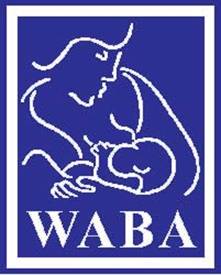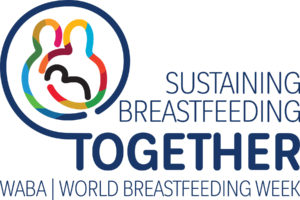“Super Dads” share the care work and support breastfeeding
“Every kid needs protection, love, good food and play to support growth and development, and it’s up to both parents to provide these.” UNICEF Ambassador Sachin Tendulkar
The role of fathers in the home is changing. With more women in the workforce, there are many more families with two working parents. The changing nature of work, rapid urbanisation, migration and fragmentation of extended families, all pose new challenges to balancing work and family responsibilities. In the past, the prevailing view was that only women could and should perform the caregiver’s role. Although this attitude remains widespread, social change towards greater equity is possible and has popular support, not least from men themselves1.
Other than the time needed for recovering from childbirth and exclusive breastfeeding, much of what a small infant needs is not directly related to women’s biological role and can be easily divided between both parents. Research shows that the healthy physical and psychological development of young children is not associated with the sex of the caregiver, but depends on the quality of caregiving and the child-caregiver interactions.2 Many countries now recognise that men want to be more involved in providing care during early childhood, but also to share care and household work.3
When fathers are better able to balance paid work and family, both parents share the challenges of being a full-time employee and caregiver together. Both parents will have an equal opportunity to balance work and family experiences. Fathers in particular are more likely to step up to take responsibility when they understand their importance in securing the health and welfare of their child. Research shows that positive interactions with fathers allow children to have better psychological health and life satisfaction in the future.4 Involved fatherhood also allows girls and women to achieve their full potential and also makes men and families happier and healthier.
Family and work balance is made possible and viable through social protection measures that enable fathers to participate in caring. Paid parental leave entitlements will empower both parents to integrate care, including the period of exclusive breastfeeding with other work. Paid leave, shared between mothers and fathers (or in other co-caregiver arrangements), enables an equitable distribution of caregiving.5 Breastfeeding rates improve when fathers are more informed and more involved in the care of the infant. 6Paid leave policies also help to advance gender equality, social justice and the wellbeing of women, children and men.7
On Father’s Day 2017, WABA supports the United Nations Children’s Fund (UNICEF) ‘Super Dads’8 campaign and the MenCare global fatherhood campaign to acknowledge and celebrate the essential role that fathers play in care work to support child development and breastfeeding.
For more information, contact:
Revathi Ramachandran revathi@waba.org.my
For more on WABA World Breastfeeding Week 1-7 August 2017 Sustaining Breastfeeding Together go to
http://worldbreastfeedingweek.org
- https://www.youthkiawaaz.com/2017/04/fathers-in-india-want-paternity-leave/
- (Levtov et al., 2015; WHO, 2004) quoted in http://www.ilo.org/wcmsp5/groups/public/—dgreports/—dcomm/—publ/documents/publication/wcms_457317.pdf
- http://www.un.org/apps/news/story.asp?NewsID=56917#.WUH6XmiGPIV
- http://sowf.men-care.org/wp-content/uploads/sites/4/2017/06/PRO17004_REPORT-Post-print-June9-WEB-2.pdf
- http://journals.sagepub.com/doi/abs/10.1177/1403494810362002?url_ver=Z39.88-2003&rfr_id=ori%3Arid%3Acrossref.org&rfr_dat=cr_pub%3Dpubmed&
- https://opendocs.ids.ac.uk/opendocs/bitstream/handle/123456789/7059/EMERGE.pdf?sequence=1#page=12
- http://superdads.hscampaigns.com/
- http://men-care.org/

